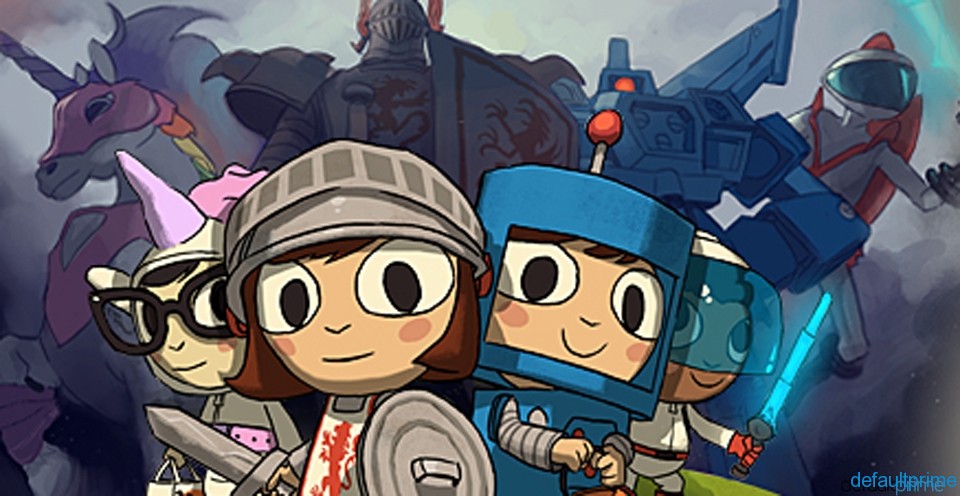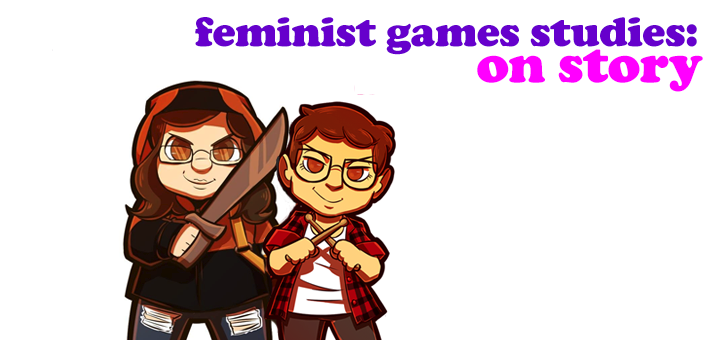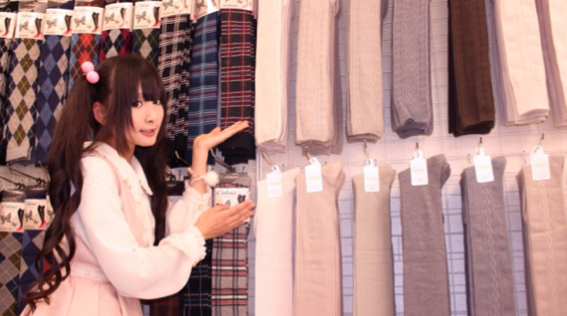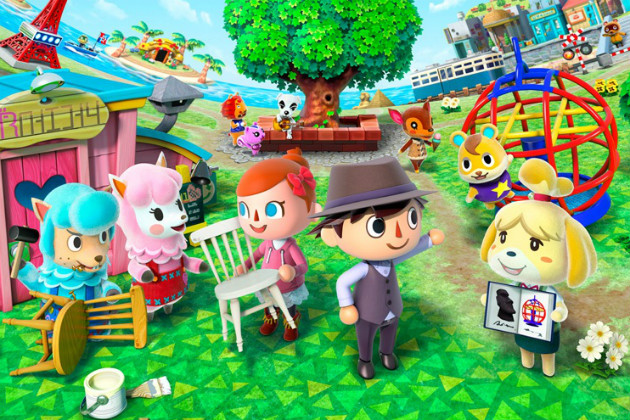My post last week, What is a Feminist Game, Anyway?, sparked an interesting conversation in the comments section and led me to discover two new games (Dreamfall- The Longest Journey and Long Live the Queen). I’d love to keep that momentum rolling- what characters have you played and thought “wow- they got it right”?
Chell, the protagonist of Portal, immediately comes to mind for me. Of course, her portrayal isn’t perfect: she has virtually no background (at least, none that you discover in the first game) and she remains mute for the entire game. Nonetheless, I loved the game’s nonchalance about her gender. It simply wasn’t a major factor in the narrative. Her appearance and attire also reflect this nonchalance, she wears a basic uniform and her physique isn’t exaggerated in any way. Chell was absolutely a character whose shoes I could step into.
This nonchalance toward gender also appears in two of the games we’ve discussed recently on this site. Dominique Pamplemousse, discussed previously here, features a character who challenges gendered language and assumptions repeatedly and calmly. As the game’s designer Deirdre Kiai mentioned in our podcast, these elements of the game were designed to open the door to dialogue about gender in non-confrontational way. Dominique deflects and responds to common questions and statements in ways that encourage players to rethink their own assumptions and colloquialisms, all while solving a mystery disappearance.
Finally, and I promise I’ll jump off this horse after one more mention, I really enjoyed Continue?9876543210. While the avatars in Continue aren’t technically mute, the brief snippets of dialogue in the form of “prayers” are common across all characters. Thus, as with Chell in Portal, these characters are generally background-free and mute. Four of the six characters are women, but the gender of your character has no impact on either the game play or the narrative. In addition to introducing female avatars with nonchalance, the game takes a more direct approach to interrogating values in games with the “Toppled Pink Castles” level. As I’ve mentioned before, this stage is filled with female NPCs that tell their side of common adventure stories- many of which include facilitating their own rescues and displaying their independence.
As you can see in my three picks, the games that resonate most with me are those that allow me to step smoothly into the shoes of a character without making their gender or sexuality their primary character trait. What games have you played and thought to yourself “wow- they got it right!”?





3 thoughts on “They got it right!”
Reminds me of this article by Jenn Frank which touches on the idea there is a difference between an anti-sexist and feminist character/game:
http://infinitelives.net/2010/01/16/video-game-feminist-of-the-decade-or-when-you-is-a-girl/
Thanks for sharing the link- I hadn’t read that article before!
I mostly agree about Chell, though there is some weight-shaming in both games from GLADOS that seems slightly sexist, in my opinion, because even women of healthy weights I think are targeted more often than men for being “fat.”
Personally, in terms of video game characters done right, I look for complex individuals that seem like real people I can empathize with rather than candy-coated stereotypes. Alyx Vance, the savvy and courageous tech from Half Life 2, comes to mind– the time you spend with her throughout the game really creates an emotional bond, and her actions that affect the story give her agency in a way that makes her seem like a person, rather than a moving part.
Speaking more holistically about game design that works rather than just characters, The Banner Saga stands out– a fairly recent game that I feel doesn’t get the attention it deserves, it’s a mixture of Oregon Trail and Fire Emblem with lots of choices to make which determine the fate of a caravan of refugees. The choices, in particular, were what made Banner Saga a novel experience– they occur in such a way that even experienced players can find themselves trapped in a difficult situation in which they really have to weigh options to determine how best to proceed. There is also definitely some feminist commentary that stems from interactions with Alette, the main character’s inexperienced daughter, and Oddleif, the wise sharpshooter, though I’ve heard the game can take some problematic turns depending on the choices you make… though in a game like that, replayability is an important feature, because you can go back and re-evaluate your initial choices by making different ones, which I find always leads to self-reflection and the construction of an “ideal” narrative for myself– games like The Banner Saga (and The Walking Dead!) that let you basically “write” a personalized narrative through gameplay are my favorite ones, because in the end I feel like I’ve created something that represents myself.